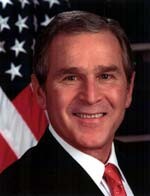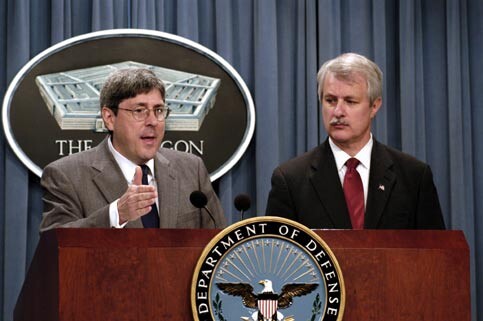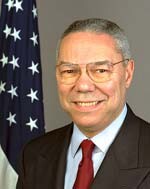The Electronic Intifada 15 March 2004

Website of The Hartford Courant.

US President George W. Bush (SD photo)
Ironically, the only times such vicious anti-Semitic caricatures appeared in the US mainstream media were when commentators like Cohen introduced them. The effect was to give the entirely false illusion that such characterizations were rampant, and to seize on a few, rare and misplaced comments about Jewish officials to silence a legitimate debate about the role of pro-Israeli activists.

Karen Kwiatkowski
In a lengthy article in the online journal Salon.com, Kwiatkowski writes, “From May 2002 until February 2003, I observed firsthand the formation of the Pentagon’s Office of Special Plans and watched the latter stages of the neoconservative capture of the policy-intelligence nexus in the run-up to the invasion of Iraq.” The “seizure of the reins of US Middle East policy,” Kwiatkowski recounts, “was directly visible to many of us working in the Near East South Asia Policy office, and yet there seemed to be little any of us could do about it.”

Under Secretary of Defense for Policy Douglas Feith (left) and Deputy Under Secretary of Defense for Near Eastern South Asian Affairs and Special Plans William Luti brief reporters on policy and intelligence during a Pentagon press conference on June 4, 2003. (DoD/Helene C. Stikkel)
All this happened under the watch of Bill Luti, the deputy secretary of defense for NESA, and went up and down the chain of command.
Some of the specific incidents Kwiatkowski recalls are illustrative: “Longtime office director Joe McMillan was reassigned to the National Defense University. The director’s job in the time of transition was to help bring the newly appointed deputy assistant secretary up to speed, ensure office continuity, act as a resource relating to regional histories and policies … Removing such a critical continuity factor was not only unusual but also seemed like willful handicapping.”
Kwiatkowski said “the expertise on Mideast policy was not only being removed, but was also being exchanged for that from various agenda-bearing think tanks, including the Middle East Media Research Institute, the Washington Institute for Near East Policy, and the Jewish Institute for National Security Affairs.” The main agenda of all these organizations is advocating closer US-Israel ties. She saw the “replacement of the civilian head of the Israel, Lebanon and Syria desk office with a young political appointee from the Washington Institute, David Schenker. Word was that the former experienced civilian desk officer tended to be evenhanded toward the policies of Israeli Premier Ariel Sharon of Israel, but there were complaints and he was gone.” As the personnel changed, so did the atmosphere; Kwiatkowski recalls that a “career civil servant rather unhappily advised me that if I wanted to be successful here, I’d better remember not to say anything positive about the Palestinians.”

Gen. Anthony Zinni, former head of U.S. Central Command. (DoD photo)

Secretary of State Colin L. Powell (SD photo)

Deputy Secretary of Defense Paul Wolfowitz. (DoD photo)
But that doesn’t mean there is no difference between Kerry and Bush. Hussein Ibish, communications director of the American-Arab Anti-Discrimination Committee explains that, “under President Kerry, the neoconservative influence on US foreign policy would almost certainly be greatly diminished for the simple reason that almost all the prominent neoconservatives have aligned themselves with the Republican Party.”
US policy would likely revert to what it was under Clinton, with some adjustments for the post-September 11 environment. But in the current circumstances, restoring the professional policymaking and intelligence apparatus of the US would be a huge improvement. Above all, it would neutralize the forces that are quietly still pushing for a march from Baghdad to Damascus in a second Bush term.
Ali Abunimah is a co-founder of The Electronic Intifada. This article first appeared in The Daily Star.




